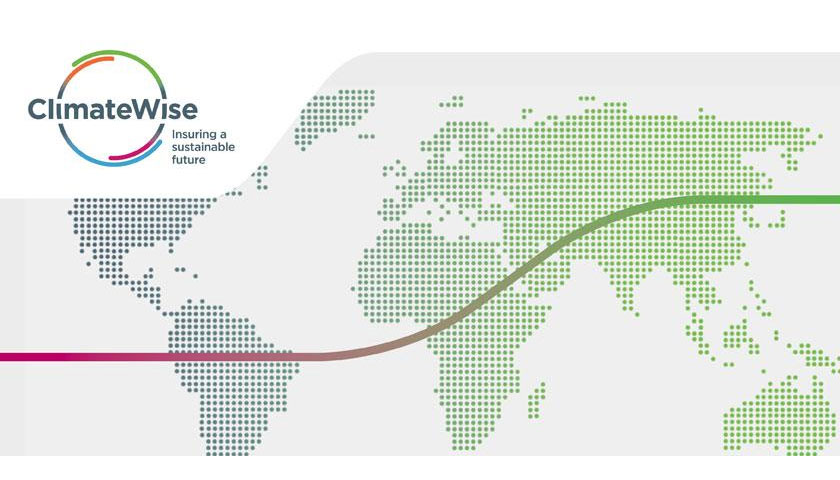Global insurance industry group ClimateWise, convened by the University of Cambridge Institute for Sustainability Leadership, has released a white paper exploring the potential contribution of innovative insurance products in the transition to a net zero economy.
The report draws on the expertise of more than 10 ClimateWise members including Aon, Allianz, Aviva, AXA XL, Lloyd’s, Zurich, and makes recommendations to support the insurance industry’s meaningful part in the decarbonisation of the global economy.
In addition, ‘Climate product innovation within the insurance sector’ highlights the need for collaboration both within and beyond the sector, including active engagement with the insurance supply chain and government, in order to create an enabling landscape to drive net zero.
Dominic Christian, Chair of ClimateWise and Global Chairman, Reinsurance Solutions at Aon said: “The tangible impacts of climate change are being felt more deeply and seen more frequently than many expected. Although the insurance industry is changing, that rate of change must accelerate and innovative climate products must be developed so that industry can both enhance resilience and facilitate the transition.
“ClimateWise members seek to be at the forefront of product innovation that drives and enables the transition to net zero and we hope this new white paper will lead the way for greater collaboration within our industry and with external decisionmakers to support the urgent need to tackle climate change.”
A number of driving forces are shaping the demand and opportunity for product innovation towards net zero across the industry, including customers, policy makers and shareholders. These drivers, alongside the expertise and influencing potential of the insurance sector to shape the agenda and policies, have informed the white paper’s nine key priority areas for insurance product innovation to support climate mitigation and adaptation:
- Enabling and incentivising low carbon choices
- Mainstreaming the encouragement of climate mitigation through efficient and resilient reinstatement
- Implementing environmentally sustainable claims servicing
- Enabling capital flows towards green solutions through risk transfer solutions
- Creating removal-based carbon offsets through natural capital protection
- Scaling emerging and existing low carbon and net-negative technologies and start-ups
- Supporting the sustainable decommissioning of carbon-intensive assets
- Developing risk advisory services to support clients’ climate mitigation understanding and approach
- Developing solutions for increasing climate legal liability and environmental litigation
Bronwyn Claire, Senior Programme Manager at ClimateWise said: “I’m delighted to see this paper come to life as a result of the ambition and expertise within the ClimateWise membership. Our aim, as ever, is to support the insurance industry as it addresses the opportunities and challenges of global change, and to ensure that the deep expertise held across the insurance value chain can be effectively harnessed to enable the transition. The priority areas identified in this paper, along with the exploration of barriers to innovation, will serve as an excellent springboard from which to advance our collective progress.”
Related to the nine key priority areas for the sector, ClimateWise proposes further recommendations to address barriers to innovation and foster greater collaboration across and beyond the insurance value chain. The following seven actions are highlighted to enable and speed-up climate product innovation:
- Actively engage with government on transition protection needs and private-public partnership opportunities to facilitate blended-finance approaches to scaling risk-transfer capital, such as through state-backed reinsurance pools.
- Upskill to enhance an ‘engineering’ approach to underwriting, building on close relationships with technology developers of all sizes.
- Coordinate across the insurance value-chain across brokers, insurers and others to reduce duplication through a common industry framework that recognises the unique role each player should address to achieve net zero.
- Drive ‘long-termism’ through a culture that incentivises innovation and works to reduce barriers that tend to embed static business-models.
- Enhance structuring of existing climate data and development of key climate models, bringing together model-vendors, in-house analytics teams, and original equipment manufacturers (OEMs) to access key data sources and advise on best practice.
- Innovate product structures and new insurance offerings that are aligned to client needs, ensuring clients and customers are aware of how newer products and structures, such as usage-based products or parametrics, can benefit them.
- Align insurance solutions with insurers commercial and climate objectives so growth areas, such as IP insurance or risk consulting, appropriately integrate climate considerations in ways that enable additional innovation.
The report was written in collaboration with Deloitte and Icebreaker One, and builds on previous research by ClimateWise examining policy opportunities to support net zero underwriting.
Neal Baumann, Deloitte Global insurance industry leader said: “The insurance industry has a critical role to play in enabling the net zero transition. Through innovation to de-risk the transition and low carbon solutions, the insurance industry can play its part in creating the services and products demanded by the wider economy as it decarbonises. Driving this agenda forward will require new ways of thinking and an engaged approach, both across the industry value chain and outside. This paper provides a timely call to action for innovation on this urgent topic, to help break down the barriers, highlighting the key priorities the industry can rally around.”
Gavin Starks, CEO and Founder, Icebreaker One said: “The insurance industry has no choice but to transition to net zero – but it can’t do it alone. To manage climate risks and unlock new commercial opportunities, it needs to find ways to collaborate, and that collaboration should start with making it easier to access and share crucial climate and financial data.
Better access to data could make or break the insurance sector’s response to climate change. It shouldn’t take enormous legal fees, hours of negotiations and expensive closed technical systems to share essential environmental data with insurers. The faster we develop an open standard to make data access easier, the faster the insurance industry can develop the products it needs to thrive in a net zero economy.”
Lucy Stanbrough, Chair of ClimateWise Managing Committee and Head of Emerging Risks, Willis Research Network at Willis Towers Watson said: “As society’s risk manager the insurance industry has a critical enabling role to play in efforts to mitigate and adapt to climate risks. As this whitepaper highlights this can’t be done in isolation, and insurance industry thinking, underpinned by scientific insights, can play a key role in helping enable the transition for customers and the wider economy.
“The entire insurance value chain – from modelling firms to loss adjustors, brokers to legal advisors – all hold pieces of the puzzle and innovation will be needed in all areas. I am looking forward to supporting our members accelerate action and level up understanding across the sector. From risk services that help reduce transition risks for clients, to the creation of incentives towards a lower carbon economy through the insurance products it offers to customers, the transition presents an opportunity to build a better business for the industry’s clients in the future.”


